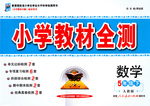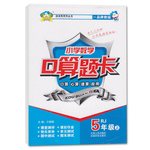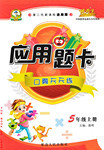题目内容
【题目】阅读下面短文,在空白处填入1个适当的单词或括号内单词的正确形式。
The next decade will see some big changes in tech. Time Magazine listed its top 【1】(invention) of 2019. Some of them will 【2】(certain) become a big part of our everyday lives over the next 10 years. GENNY is the one we’re most looking forward to.
Water, water everywhere, so let’s all have【3】 drink. That old saying must have inspired GENNY, made by Israeli company Watergen. The air around【4】is full of water vapor (蒸汽), 【5】we can’t drink it until now.
GENNY is a machine 【6】makes “safe, clean drinking water” by collect water vapor from the air,【7】(report) Israel Hayom. It can produce up to 27 lit in a day! It's designed to look like a home water cooler. Like its design, its process simple. It collects air, and then cools the air to its freezing point, 【8】(create)liquid water. The water then goes through a cleaning process and minerals 【9】(add) tastiness and health quality.
Watergen's chairperson, Michael Lee, said, “Our goal and 【10】(responsible) to save..... and to change the world for the better.”
【答案】
【1】inventions
【2】certainly
【3】a
【4】us
【5】but
【6】that/which
【7】reported
【8】creating
【9】are added
【10】responsibility
【解析】
这是一篇说明文。未来十年,科技将发生一些重大变化。文章介绍了我们最期待的一项发明——GENNY。
【1】考查名词复数。句意:《时代》杂志列出了2019年的最佳发明。此处invention是名词,2019年的最佳发明不止一个,所以此处用名词复数。故填inventions。
【2】考查副词。句意:在未来10年里,其中一些肯定会成为我们日常生活的重要组成部分。此处become是动词,由副词修饰,所给词certain是形容词,其副词是certainly。故填certainly。
【3】考查不定冠词。句意:水,到处都是水,所以让我们都喝一杯。此处drink是名词,“酒,饮料”,have a drink“喝一杯”。故填a。
【4】考查人称代词宾格。句意:我们周围的空气充满了水蒸气,但直到现在我们才能喝到它。此处around是介词,意思是“在…周围”,后面的人称代词用宾格,故填us。
【5】考查并列连词。句意:我们周围的空气充满了水蒸气,但直到现在我们才能喝到它。前后是一种转折关系,横线后面没有逗号,不用however。故填but。
【6】考查定语从句。句意:据Israel Hayom报道,GENNY是一种通过收集空气中的水蒸气来制造“安全、清洁的饮用水”的机器。此处machine是先行词,指物,在后面的定语从句中作主语,故填that/which。
【7】考查一般过去时态。句意:据Israel Hayom报道,GENNY是一种通过收集空气中的水蒸气来制造“安全、清洁的饮用水”的机器。此处report“报道”是过去发生的动作,所以句子用一般过去时态。故填reported。
【8】考查现在分词作伴随状语。句意:它收集空气,然后将空气冷却到冰点,产生液态水。句子主语it和create之间是主动关系,用现在分词作伴随状语。故填creating。
【9】考查一般现在时态的被动语态。句意:然后,水经过一个清洗过程,矿物质增加了味道和健康质量。主语minerals是复数形式,和add之间是被动关系,且描述一个客观事实,所以句子用一般现在时态的被动语态。故填are added。
【10】考查名词。句意:我们拯救…的目标和责任让世界变得更美好。这里是与goal构成的并列主语,所以用名词形式,所给词responsible是形容词,其名词是responsibility。故填responsibility。
分析定语从句关键抓住两点:第一、找准先行词;第二、看先行词在定语从句中所作的成分。先行词往往为名词或代词,如本题中先行词为名词machine,再分析先行词machine在定语从句中所作的成分,将先行词machine代到从句中可知,只能作主语,故确定关系词为that/which。

 小学教材全测系列答案
小学教材全测系列答案 小学数学口算题卡脱口而出系列答案
小学数学口算题卡脱口而出系列答案 优秀生应用题卡口算天天练系列答案
优秀生应用题卡口算天天练系列答案